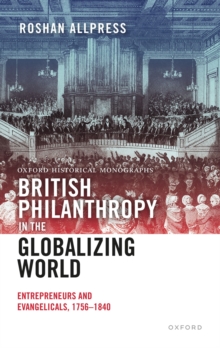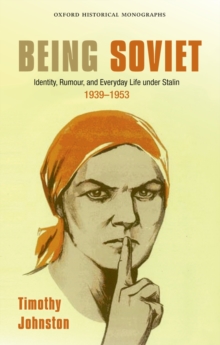
God and Progress : Religion and History in British Intellectual Culture, 1845 - 1914 Hardback
by Joshua (Junior Research Fellow in History, Junior Research Fellow in History, Christ Church Bennett
Part of the Oxford Historical Monographs series
Hardback
Description
Exploring the rich relationship between historical thought and religious debate in Victorian culture, God and Progress offers a unique and authoritative account of intellectual change in nineteenth-century Britain.
The volume recovers a twofold process in which the growth of progressive ideas of history transformed British Protestant traditions, as religious debate, in turn, profoundly shaped Victorian ideas of history.
It adopts a remarkably wide contextual perspective, embracing believers and unbelievers, Anglicans and nonconformists, and writers from different parts of the British Isles, fully situating British debates in relation to their European and especially German Idealist surroundings.
The Victorian intellectual mainstream came to terms with religious diversity, changing ethical sensibilities, and new kinds of knowledge by encouraging providential, spiritualized, and developmental understandings of human time.
A secular counter-culture simultaneously disturbed this complex consensus, grounding progress in appeals to scientific advances and the retreat of metaphysics.
God and Progress thus explores the ways in which divisions within British liberalism were fundamentally related to differences over the past, present, and future of religion.
It also demonstrates that religious debate powered the process by which historicism acquired cultural authority in Victorian national life, and later began to lose it.
The study reconstructs the ways in which theological dynamics, often relegated to the margins of nineteenth-century British intellectual history, effectively forged its leading patterns.
Information
-
Out of stock
- Format:Hardback
- Pages:324 pages
- Publisher:Oxford University Press
- Publication Date:13/03/2019
- Category:
- ISBN:9780198837725
Information
-
Out of stock
- Format:Hardback
- Pages:324 pages
- Publisher:Oxford University Press
- Publication Date:13/03/2019
- Category:
- ISBN:9780198837725










